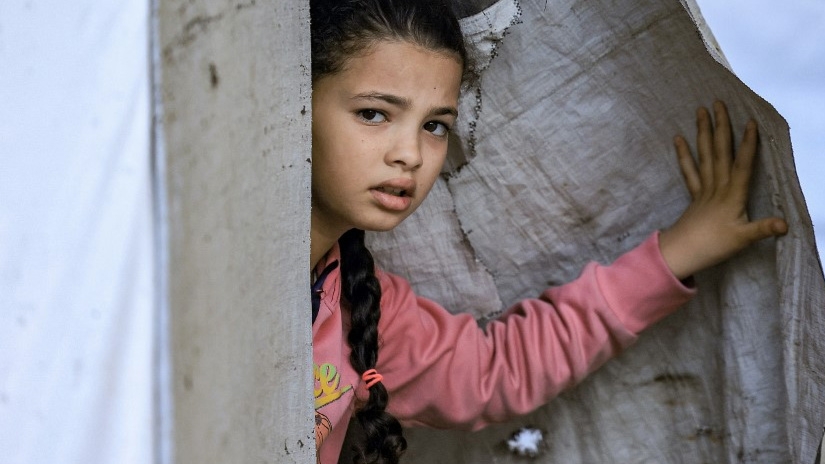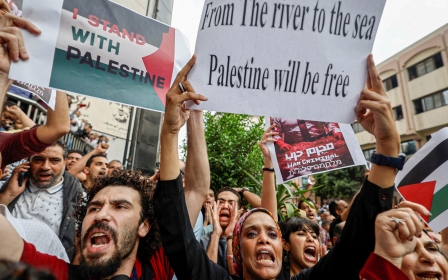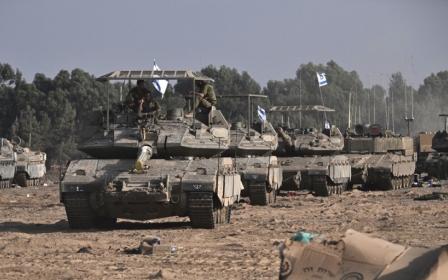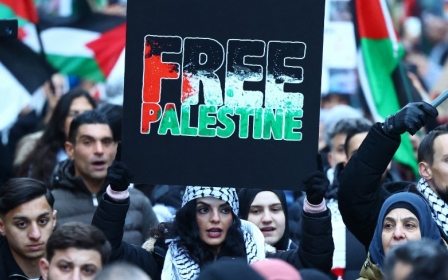Israel-Palestine war: How will the Middle East look after the Gaza war?

It is not possible to fully predict how the Middle East will look after the Gaza war, a conflict that Israeli Prime Minister Benjamin Netanyahu has vowed will reshape the region.
We do not yet know what the political outcome of the war will be, even as the catastrophic proportions become increasingly evident, with more than 16,000 Palestinians killed so far - mostly women and children. Around 1.8 million people have been displaced, as Gaza’s infrastructure has been decimated.
The “new face” of the Middle East will thus be characterised by a large number of refugees and displaced people, compounding the effects of the 1948 Nakba, whose descendants already inhabit the camps of Gaza. We are facing a state of generational displacement.
The situation is comparable to the Syria war, which has forced huge numbers of refugees and displaced persons to live in crowded camps under inhumane conditions.
Indeed, there is a new generation emerging across the region. In Jordan, the birth rate among Syrian refugees is reportedly higher than that of Jordanians. There are more than five million registered Syrian refugees across Turkey, Lebanon, Jordan, Iraq and Egypt, in addition to millions of internally displaced Syrians. Many live in difficult conditions and face extreme poverty.
New MEE newsletter: Jerusalem Dispatch
Sign up to get the latest insights and analysis on Israel-Palestine, alongside Turkey Unpacked and other MEE newsletters
The war in Yemen has also fuelled the refugee crisis, with around 4.5 million people being forced to flee their homes. This comes after the Iraq and Afghanistan wars led to their own refugee outflows over the past two decades.
Those being displaced in Gaza today are now joining this list. The war will also create a new generation of psychological anguish, as families struggle to cope with the massive scale of death and loss.
Unstable generation
The dynamics of displacement are necessarily linked to the dynamics of radicalism, anxiety, uncertainty and anger. This facilitates the process of recruiting disaffected youth to groups such as the Islamic State. What we have is a ticking time bomb, represented by a marginalised and unstable generation living in abnormal conditions.
The “new Middle East” that emerges after the Gaza war will also be affected by the rising role of non-state and semi-state actors. This war has bolstered the relevance of such actors, primarily Hamas, which is classified as a terrorist organisation in the UK and other countries. The profiles of Lebanon’s Hezbollah and the Houthis in Yemen have also been raised.
Follow Middle East Eye's live coverage for the latest on the Israel-Palestine war
If we add these to another group of actors outside the scope of the Gaza war - such as Hayat Tahrir al-Sham in Idlib, Syria, and the Kurdish-dominated Syrian Democratic Forces - we can see a relative decline in the military weight of formal state actors in the context of regional dynamics.
The rising role of non-state and semi-state actors reflects the miserable failure of the concept of the Arab national state. It also brings dire consequences, including a return to ethnic, religious and sectarian affiliations, and the disintegration of the sovereignty of regional states.
The rising role of non-state and semi-state actors reflects the miserable failure of the concept of the Arab national state
In addition, it reflects a boom in cross-border relations and an extension of Iranian influence (as part of the “axis of resistance”). We are also seeing a shift in the nature of regional wars, with a growing emphasis on urban warfare, proxy battles, psychological warfare, propaganda and disinformation.
At the same time, the Gaza war is renewing discussion over the strategic importance of the Middle East within the realm of international politics, in an era where the US has been pursuing a policy of regional disengagement amid a pivot to China and Russia. The current war is prompting a rethink of such policies.
It is becoming increasingly clear that the value and importance of the Middle East goes beyond economic and commercial considerations to the religious, symbolic and cultural spheres, linking major countries across the region, especially when it comes to the Palestinian issue.
Where these are some of the initial regional implications, others will surely appear with the passage of time and the emergence of a clearer picture of the results of the Gaza war.
The views expressed in this article belong to the author and do not necessarily reflect the editorial policy of Middle East Eye.
This article is available in French on Middle East Eye French edition.
Middle East Eye delivers independent and unrivalled coverage and analysis of the Middle East, North Africa and beyond. To learn more about republishing this content and the associated fees, please fill out this form. More about MEE can be found here.





